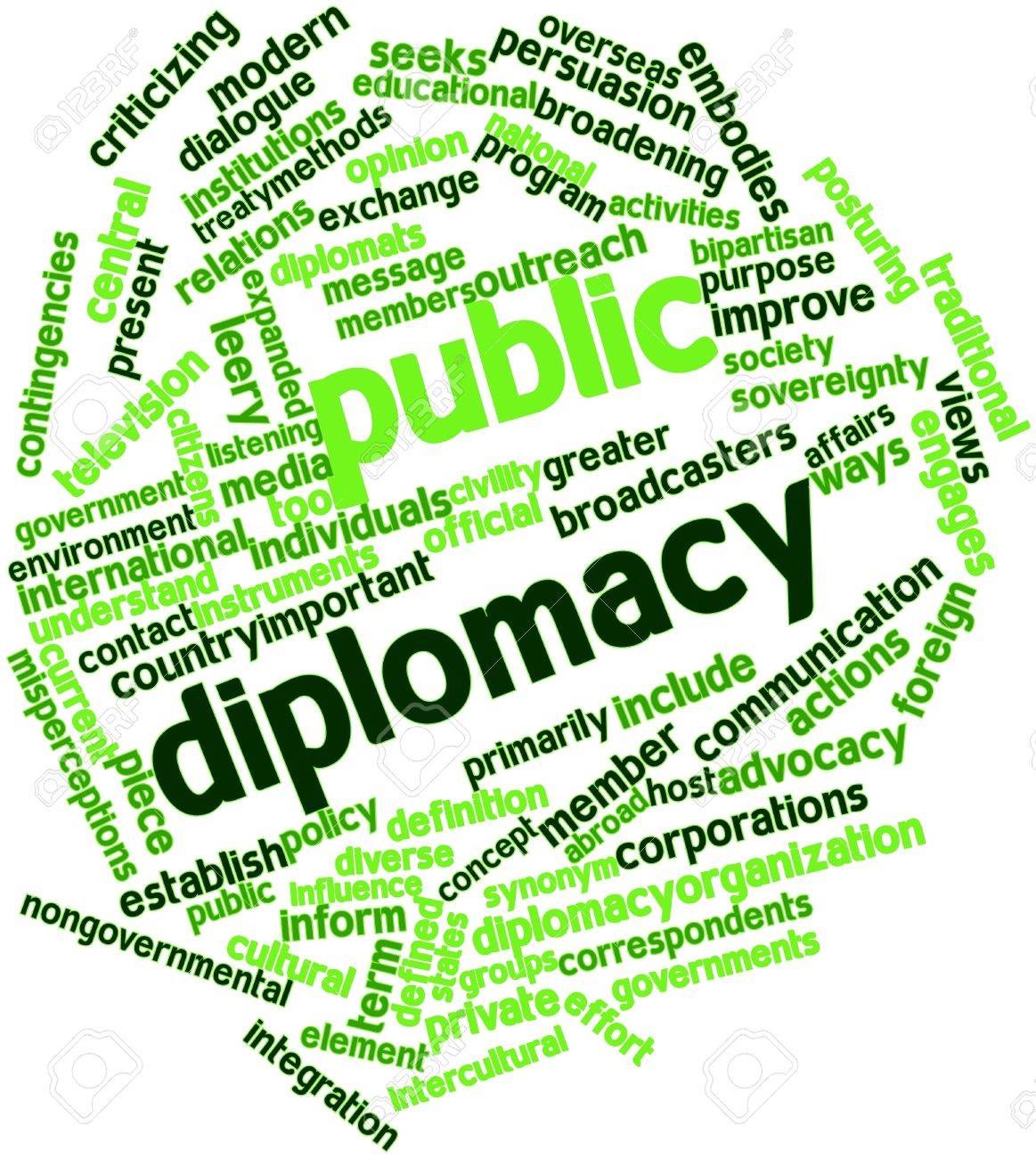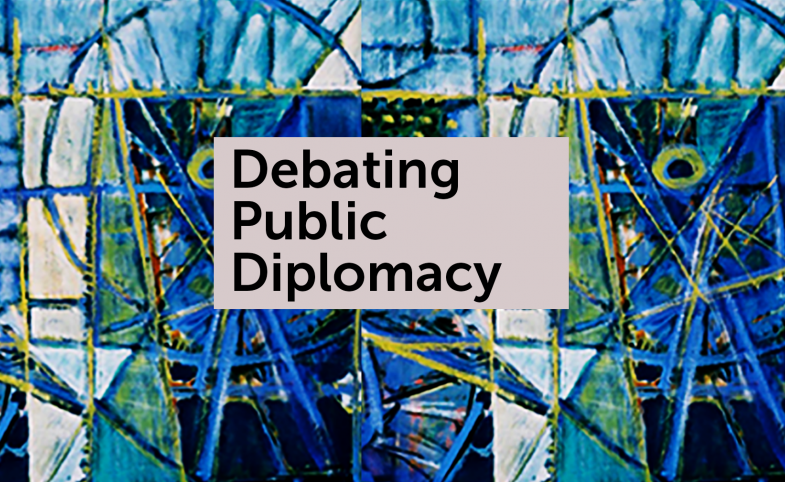| The euphoria over the “victory” in Iraq is now replaced by increasing doubts about how the Bush administration justified and reported on the war. No weapons of mass destruction have been found. The Iraqi people we were supposed to liberate are not greeting American troops with open arms. Press reports on the saving of Private Lynch raise questions about the accuracy of the Pentagon’s coverage of the event.
Letters to the editor in major newspapers complain that the Bush administration lied about the war. More media are suggesting that the pro-war arguments of the administration were deceitful. The public increasingly senses that it was duped by propaganda into supporting a phony war. Americans’ suspicions of propaganda by their own government have a long history. It would not be surprising if this anti-propaganda tradition were to resurface given the growing controversy over the reasons the Bush administration led the country into war. The Great War, which ended America’s isolation from major European conflicts, was modern propaganda’s launching pad. Both sides in this global conflict – especially the Allies – made use of this method of mass persuasion to defeat their enemy. In April 1917, shortly after declaring war on Germany, the Wilson administration established the Committee on Public Information (CPI), which at its peak employed 150,000 people. Its goal was the creation of a “war will” among an ethnically diverse American population, according to its chief George Creel. Abroad, its purpose was to convince publics that America, reliable, honest and invincible, would defeat German militarism and make the world safe for democracy. Wilson wanted the CPI under his close control. “I am very jealous in the matter of propaganda. I want to keep the matter of publicity in my own hands,” he wrote. He appointed a trusted and admiring supporter, Creel – a man with a “passion for adjectives,” he noted – to be in charge. Creel used the latest media to win the world over to America. Movies served this purpose perfectly. As far off as remote Siberia, CPI operatives used the new medium with what they claimed was success. Propaganda experts in the post-war period saw Wilson as a master of the trade. Harold Lasswell, author of the classic Propaganda Technique in the World War, wrote that Wilson was “the great generalissimo of the propaganda front.” Adolph Hitler said in Mein Kampf that “the war propaganda of the English and Americans was psychologically correct. After four and one-half years a revolution broke out in Germany, slogans for which came from the enemy’s propaganda.” But if Hitler admired Allied propaganda, the American public turned against it (and the administration that had created it) after the war. Even during the war, Congress had been critical of Creel and his methods. This negative attitude began among American troops in Europe, where doughboys sent abroad to make the world safe for democracy discovered that “atrocity stories had been false concoctions and that the Germans had behaved no worse than any other combatants,” according to the scholar J. Michael Sproule. U.S. soldiers concluded that propaganda – even if homemade – had been misleading and untrue. “An Age of Lies,” an article written in 1919 by Will Irwin, muckraker and former director of the CPI’s foreign section, reflects this disillusionment. The CPI’s overseas dispatches were “nearer the truth than any of the others,” Irwin believed. But his journalistic conscience admitted that “we never told the whole truth – not by any manner of means. We told that part which served our national purpose.” A second accusation against propaganda was its violence to language. As early as 1915, the novelist Henry James said in an interview in The New York Times: “The war has used up words; they have weakened, they have deteriorated like motor car tires; they have, like millions of other things, been more over-strained and knocked about and voided than in all the long ages before, and we are now confronted with a depreciation of all our terms, or, otherwise speaking, with a loss of expression through an increase of limpness, that may well make us wonder what ghosts will be left to walk.” Hemingway, a witness in the ambulance corps to the horrors of World War I, “contemptuously rejected the language of officialdom,” the historian Brett Gary writes. He’d had enough of what the philosopher Bertrand Russell calls “the foul literature of glory.” The antihero in A Farewell to Arms laments: “Abstract words such as glory, honor, courage, or hallow were obscene behind the concrete names of villages, the numbers of roads, the names of rivers, the numbers of regiments and the dates.” A third criticism of propaganda was that it had “spread germs of hate,” in the words of George Viereck, a German-American publicist who became a Nazi sympathizer. The CPI “stirred up hatred of all things German. Portrayed as barbaric Huns, Germans appeared intent on conquering the world for their own selfish ends. Germans spies, the CPI hinted, were everywhere,” the distinguished historian Allan Winkler writes, adding that “the CPI did spark support for the war, but it also helped stir up the hysteria that led unthinking Americans to rename sauerkraut ‘liberty cabbage’ and hamburger ‘Salisbury steak’.” Dr. Louis Gray, University of Nebraska, is cited by Viereck as saying: “Ethically, the Prussian is a moral imbecile, an arrested development, a savage in civilization’s garb, and even the garb he has stolen … the War is but an episode in the age-long struggle between good and evil, between God and the Devil.” Advertising was not held in high regard at the time by Americans, who believed that “the truth sometimes seemed lost in the drive to sell new goods,” according to Winkler. Propaganda’s similarities to publicity were a fourth reason for the low reputation it acquired. Eager to refute this anti-advertising, anti-propaganda stance, Edward Bernays, the father of public relations and Viennese-born nephew of Sigmund Freud as well as a Committee on Public Information graduate, wrote in his Propaganda (1928) that “intelligent men must realize that propaganda is the modern instrument by which they can fight for productive ends and help bring order out of chaos.” A fifth accusation against World War I propaganda was its distortion of history (2,500 historians were potential propaganda writers during the war, according to Creel). The opening of Russian archives by the Bolsheviks in November 1917 provided evidence against the assumption that Germany was the only guilty party in the war. Scholarly works argued that British propaganda machinations had led America into war: James Duane Squires’s British Propaganda at Home and in the United States From 1914 to 1917 (1935), and H.C. Peterson’s Propaganda for War: The Campaign Against American neutrality, 1914-1917 (1939). Finally, propaganda was seen as incompatible with democracy. “Most intellectuals conceived of political propaganda as dishonestly partisan, one-sided, antidemocratic in its techniques and aims, something that democracies should avoid being contaminated by,” Gary says, emphasizing that the philosopher John Dewey was among those concerned about the role of propaganda in democratic politics. Anti-propagandists underscored the dichotomy between propaganda and education in a democracy, among them Frederick Lumley in The Propaganda Menace, Elmer Ellis, Jr., in Education Against Propaganda, and publications of the Institute for Propaganda Analysis active in the 1930s. America’s “public philosopher,” Walter Lippmann, known as the “Man with the Flashlight Mind, the Great Elucidator” and who had served in the Propaganda Section of Military Intelligence in World War I, wrote extensively and critically about propaganda. Lippmann was not opposed to propaganda as such, but he was wary of how it was used and who used it. Like Doob, he examined propaganda scientifically, not emotionally. He wanted it under tight control (his own). The U.S. Government and Propaganda after World War I A result of the anti-propaganda mood in the United States in that period was that in later years the U.S. government was more cautious in the overt use of propaganda than the Wilson Administration. Faced with the threat of Nazi and fascist propaganda in Latin America in the 1930s, the State Department reacted not with a counter-propaganda agency, but with the creation of the Division of Cultural Relations (1938), the mandate of which was to use only education and culture, not propaganda, to accomplish its mission. After America entered World War II, the U.S government, eager to achieve victory at all costs, became less reluctant to use propaganda, as the activities of the Office of War Information (established in 1942) suggest. But OWI staffers expressed discomfort and concern about their work as propagandists. Archibald MacLeish, writer and Librarian of Congress who worked for the OWI, noted that: “I hated information work. I was asked to do it, and I always detested it. I suppose that in times of peace, so-called, you could probably devote yourself to information …. But in war you were always on the verge of propaganda and … although some of the propaganda you could give your whole heart to, some you couldn’t. I just detested it …. As soon as I felt that I could honorably get out of it, I did.” OWI’s chief, Wallace Carroll, underscored the difficult moral situation he believed he and his colleagues faced, writing that the propagandist had “a choice between giving the news and withholding it, between the practices of journalism and the dictates of war, between the urge to inform and the passion to save lives, between common honesty and plain humanity.” This ambivalent attitude toward propaganda is also reflected in Voice of America broadcasts during the war years, which omitted reports on the Holocaust for fear that they would be considered atrocity stories and thus not be believed. In 1946, After World War II, Senator J. William Fulbright, the initiator of the exchange program associated with his name, epitomized the anti-propaganda tradition in the U.S. His program, he repeatedly insisted, was not propaganda, but a way to increase mutual understanding between the United States and the rest of the world. In 1948, concerned that the American public could be the victim of propaganda produced by its own government, the Congress passed the Smith-Mundt Act, which forbade the domestic dissemination of U.S. government materials intended for foreign audiences. This legislation is still in effect today. In the early years of the Cold War, officials concerned about the Soviet threat made a strong pitch for the use of propaganda. In 1949 Assistant Secretary of State George V. Allen wrote that: “propaganda on an immense scale is here to stay. We Americans must become informed and adept at its use, defensively and offensively, or we may find ourselves as archaic as the belted knight who refused to take gunpowder seriously 500 years ago.” The United States Information Agency (USIA), founded in 1953, was established as a propaganda agency (although it was careful not to use the word “propaganda” to describe what it did) because the State Department did not want to be associated with an activity for which it had little regard. As U.S.-Soviet tensions eased, America’s anti-propaganda attitude quickly resurfaced, and a new term was used to describe the USIA’s mission: “public diplomacy.” This term was first coined in the mid-1960s by Dean Edmund A. Gullion of the Fletcher School of Law and Diplomacy. Explaining the origin of the term, Gullion wrote (1967) that: “Even beyond the organ of the Government set up to handle information about the United States and to explain our policies, what is important today is the interaction of groups, peoples, and cultures beyond national borders, influencing the way groups and peoples in other countries think about foreign affairs, react to our policies, and affect the policies of their respective governments. “To connote this activity, we at the Fletcher School tried to find a name. I would have liked to call it ‘propaganda.’ It seemed like the nearest thing in the pure interpretation of the word to what we were doing. But ‘propaganda’ has always a pejorative connotation in this country. To describe the whole range of communications, information, and propaganda, we hit upon ‘public diplomacy’.” [SOURCE: Robert F. Delaney and John S. Gibson, editors, American Public Diplomacy: The Perspective of Fifty Years (Medford Mass: The Edward R. Murrow Center of Public Diplomacy, Fletcher School of Law and Diplomacy, The Lincoln Filene Center for Citizenship and Public Affairs, 1967), p. 31] In 1999, when USIA was consolidated into the State Department, Secretary of State Madeleine Albright placed the former agency firmly in the U.S. anti-propaganda tradition, praising its work of “almost half a century” as being that of “the most effective anti-propaganda institution on the face of the earth.” How does this brief historical excursion into the anti-propaganda tradition in the U.S. relate to what is happening today? It tells us that America historically has been sensitive to the use and misuse of propaganda, especially by its own government. Americans from all walks of life react angrily when they believe that crude propaganda is imposed on them or used to disseminate inaccurate information. It’s a reaction that the Bush administration, with its infatuation with stagecraft, will increasingly have to face.
Source documents consulted for this article |
||








